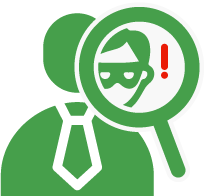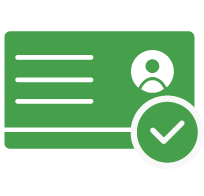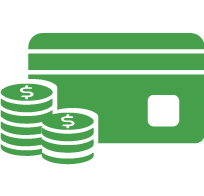Table of Contents
South Africa is fast becoming one of the primary destinations for traders of all financial assets. Therefore this warrants a massive influx of Forex brokers, Stockbrokers, and CFD brokers in South Africa. However, no matter how hard the local financial regulator, FSCA ( Financial Sector Conduct Authority) may try it, some shady companies and Forex scammers in South Africa may still escape through the cracks. When this happens, traders will be left to fend for themselves, to identify all of the scammers and try to avoid them. There are some guarantees that you may have your funds returned to you from the FSCA if you are scammed, but why risk it? Why not prevent the loss of funds in the first place? Let’s now discuss all of the available methods to avoid trading scams in South Africa.
Initial Research

No matter how good the marketing of a Forex broker is, you still need to experience its features first hand. By experience, I mean review and research the company. The best way to do this is to go to their website and check all of the documents. Usually, there are a few immediate giveaways for a scam, but some are more elaborate and hard to notice. Although the relatively low level of Forex fraud in South Africa is a good indicator, it shouldn’t make traders more relaxed, a clean history is like a blank canvas for a scammer. Here’s what you need to pay attention to when researching the company:
The Website
 If the company does not pay attention to their website, then there’s no guarantee that they will pay attention to you. The website needs to have a simple design and should be transparent from the get-go. This means that all of the available information should be just 1 click away for the user. South African Financial scammers usually hide all of their features behind the account. Meaning, that you actually have to register to find out more, the more trustworthy ones display them on the front page for the world to see. if you have a hard time navigating through the website pages, as well as finding extra information, it could be a sign of something fishy going on. The most notable case where the broker displays absolutely no information is Velocity Trade.
If the company does not pay attention to their website, then there’s no guarantee that they will pay attention to you. The website needs to have a simple design and should be transparent from the get-go. This means that all of the available information should be just 1 click away for the user. South African Financial scammers usually hide all of their features behind the account. Meaning, that you actually have to register to find out more, the more trustworthy ones display them on the front page for the world to see. if you have a hard time navigating through the website pages, as well as finding extra information, it could be a sign of something fishy going on. The most notable case where the broker displays absolutely no information is Velocity Trade.
The Regulation
 For a South African trader, it is imperative that a brokerage has a license from the FSCA. Although there are exceptions where the firm features multiple other licenses from trustworthy regulators like FCA, ASIC or BaFIN. Nevertheless, make sure that the brokerage is featured on FSCA’s webpage, or at least have a recommendation from them. The reason is quite simple. With a license, the FSCA can make sure that the brokerage is following the local regulations and is not violating anything. Furthermore, the local license makes it easier for you to get your money back from a scam in South Africa, thanks to the regulator. You do have the ability to request compensation from a foreign regulator, but they will treat your request with the least priority.
For a South African trader, it is imperative that a brokerage has a license from the FSCA. Although there are exceptions where the firm features multiple other licenses from trustworthy regulators like FCA, ASIC or BaFIN. Nevertheless, make sure that the brokerage is featured on FSCA’s webpage, or at least have a recommendation from them. The reason is quite simple. With a license, the FSCA can make sure that the brokerage is following the local regulations and is not violating anything. Furthermore, the local license makes it easier for you to get your money back from a scam in South Africa, thanks to the regulator. You do have the ability to request compensation from a foreign regulator, but they will treat your request with the least priority.
The Firm itself
 Try to understand what the company is actually about. What is their history of operations like? Where else are they located? Do they have a social media platform to talk with existing customers? How big are they? How do they make money? Who are the people behind the company?
Try to understand what the company is actually about. What is their history of operations like? Where else are they located? Do they have a social media platform to talk with existing customers? How big are they? How do they make money? Who are the people behind the company?
These are the questions that you need to ask while reviewing the firm. The best way to avoid scams in South Africa is to actually track their local employees. The regulations state that if the company is to have an office in the country, they need at least 1 local employee. They usually showcase the man or woman without a problem, but it is up to you to determine whether he or she is even real.
Withdrawal & Deposit policies
 Withdrawals are the most important aspect of a Forex broker. They need to be as quick as possible and have all the alternatives. Things like Skrill and PayPal options are always a welcome addition. However, make sure to review their policies. Some brokers have limits and fees on withdrawals. Deposits are also an important mention. Generally, the scammers follow the same patterns, high minimum deposits, and low withdrawal limits. Even if it isn’t a scam, it’s very inconvenient for beginners.
Withdrawals are the most important aspect of a Forex broker. They need to be as quick as possible and have all the alternatives. Things like Skrill and PayPal options are always a welcome addition. However, make sure to review their policies. Some brokers have limits and fees on withdrawals. Deposits are also an important mention. Generally, the scammers follow the same patterns, high minimum deposits, and low withdrawal limits. Even if it isn’t a scam, it’s very inconvenient for beginners.
Reviews
 Another way to simplify your research of the brokerage is to read Forex broker reviews. The reviews usually don’t teach you how to avoid scams in South Africa but are a great source of information. For example, all of the points I listed above are exactly the ones we use to review brokerages here on TopForexBrokers.co.za. But before reading the reviews I recommend that you do your own research first. The review has another great benefit, where it can be a good tool to confirm your initial research or find out the things that you have missed.
Another way to simplify your research of the brokerage is to read Forex broker reviews. The reviews usually don’t teach you how to avoid scams in South Africa but are a great source of information. For example, all of the points I listed above are exactly the ones we use to review brokerages here on TopForexBrokers.co.za. But before reading the reviews I recommend that you do your own research first. The review has another great benefit, where it can be a good tool to confirm your initial research or find out the things that you have missed.
However, reviews sometimes come at a disadvantage as well. Some can be fake, wrong or downright terrible as some South African Forex scammers pay to have a positive review. You can usually tell it through the language being used in the article. If it’s all over the place, trying to avoid the main topic, then most likely it is a fake review. The best thing to look for when reading the review is the intro, which needs to contain all of the technical information about the brokerage. Things like the spread, leverage, regulation, minimum deposit, and withdrawal policies need to be mentioned straight from the beginning.
Social Platforms
 Social platforms are quite uncommon with Forex brokers, but those who have it are way less likely to be a scam. The reasons are quite simple. If the customer base has a platform where they can voice their opinions freely, a platform that the broker itself promotes, it would be extremely hard to hide the scam and would help traders avoid it.
Social platforms are quite uncommon with Forex brokers, but those who have it are way less likely to be a scam. The reasons are quite simple. If the customer base has a platform where they can voice their opinions freely, a platform that the broker itself promotes, it would be extremely hard to hide the scam and would help traders avoid it.
But, with everything else, some forex trading scams South Africa are quite smart and create hundreds of fake accounts to spam positive comments on their social media platforms. You’d think that it’s easy to distinguish a fake Facebook or Twitter account, but there are agencies that specialize in developing these fake accounts. They usually have it for a couple of years on random social platforms, commenting rubbish on different posts in order to pose real accounts. But in most cases, a simple “Seach Google for image” is enough to find out the truth.













Comments (0 comment(s))